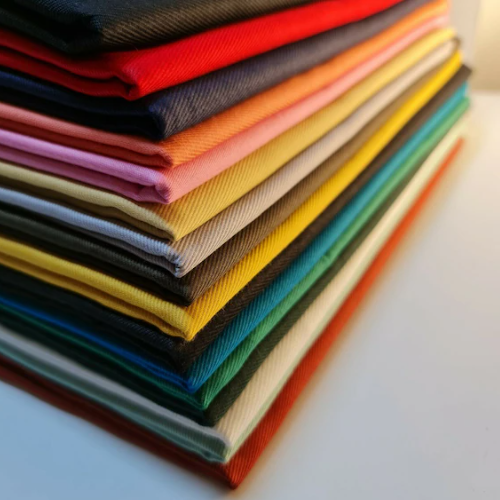It is important to choose the right workwear fabric to ensure the safety, comfort, and productivity of your workforce. The right fabric can make a big difference in protecting your workers from hazards specific to your industry, while also helping them perform better and be more satisfied on the job. As a leading manufacturer of durable industrial workwear fabrics, we know how important it is to choose materials that meet the unique needs of different working environments. In this blog post, we’ll guide you through the key factors to consider when choosing the right workwear fabric for your industry.
Understanding Industry Requirements
Different industries have different requirements based on the work being done and the conditions in which it is done. Here are some things to think about for some key industries:
1. Construction and Engineering
People in construction and engineering work in tough conditions with rough surfaces, heavy machinery, and unpredictable weather. You need fabric that is:
- Durable: To stand up to abrasion and frequent washing.
- Comfortable: To allow for easy movement and breathability in all kinds of weather.
- High-Visibility: Often required to prevent accidents, especially in low-light conditions.
Recommended Fabrics: Heavy-duty cotton drill, polyester/cotton blends with high-visibility treatments.
2. Oil and Gas
The oil and gas industry involves exposure to fire hazards, chemicals, and extreme temperatures. You need fabric that is:
- Flame-Resistant (FR): To protect against flash fires and electric arcs.
- Chemical Resistant: To protect against spills and splashes.
- Durable: To stand up to rough handling and harsh conditions.
Recommended Fabrics: 100% Cotton & Cotton/Nylon blends with FR treatment, aramid fibers.
3. Mining
Mining environments are tough, with exposure to dust, heavy equipment, and extreme conditions. You need fabric that is:
- Durable: To stand up to the rigors of the mining environment.
- Breathable: To keep workers comfortable in hot and humid conditions.
- Protective: Against hazards like sharp objects and heavy machinery.
Recommended Fabrics: Heavy-duty cotton drill, polyester/cotton blends with moisture-wicking properties.
4. Healthcare
Healthcare workers need fabric that is:
- Comfortable: For long shifts and lots of movement.
- Anti-Microbial: To prevent the spread of infections.
- Easy to Clean: Resistant to stains and frequent washing.
Recommended Fabrics: Polyester/cotton blends with anti-microbial treatments.
5. Food Processing
The food processing industry needs fabric that is:
- Hygienic: Resistant to contamination and easy to sanitize.
- Durable: To stand up to frequent washing and harsh cleaning chemicals.
- Comfortable: For ease of movement during long shifts.
Recommended Fabrics: Polyester/Cotton blends with moisture-wicking and anti-microbial properties.
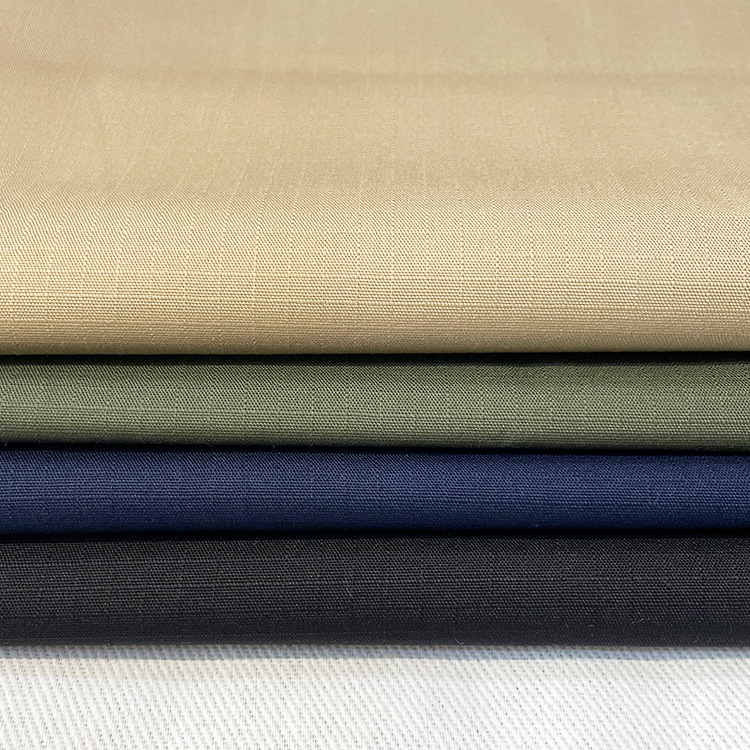
Key Factors to Consider
When selecting workwear fabrics, there are several key factors to consider:
1. Durability
Durability is a key factor to consider when selecting workwear fabrics, especially in industries with harsh working conditions. Look for fabrics that have high resistance to abrasion, tearing, and durable washing. Heavy-duty cotton drill and polyester/cotton blends are known for their durability.
2. Comfort and Fit
Comfort is important to maintain productivity and worker satisfaction. Look for fabrics that are breathable, flexible, and moisture-wicking to keep workers comfortable throughout their movements. Cotton and polyester blends are good options that provide a good balance of comfort and durability.
3. Safety Features
Safety is important in any industry. Make sure the fabric meets the necessary safety standards and certifications for your industry. For example, flame-resistant fabrics are important in oil and gas, while high-visibility materials are important in construction and road work.
4. Climate Appropriateness
The fabric should be appropriate for the climate conditions of the work environment. Breathable fabrics are good for hot and humid conditions, while insulated materials are needed for cold climates. Look for moisture-wicking properties for added comfort in varying temperatures.
5. Compliance with Standards
Make sure the fabrics comply with industry standards and certifications. This includes standards for flame resistance, high visibility, and chemical resistance. Certifications such as NFPA 2112, EN ISO 20471, and OEKO-TEX® Standard 100 provide assurance of the fabric’s safety and quality.
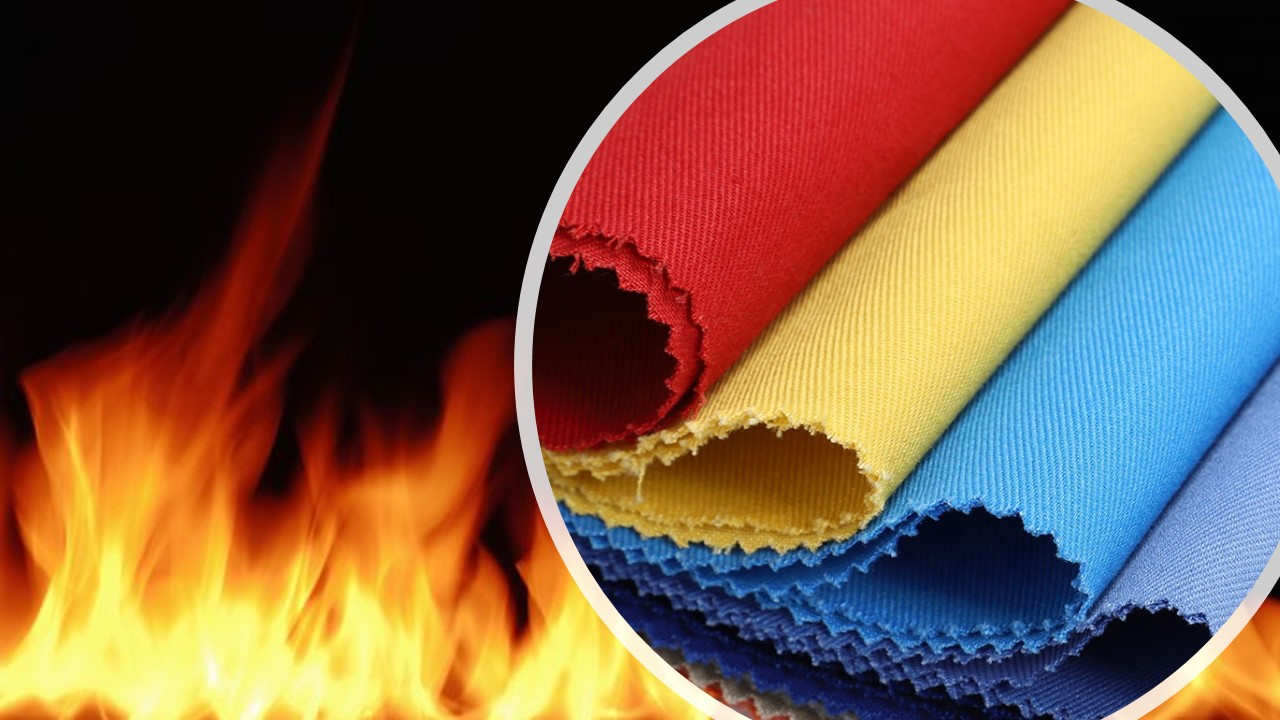
Common Workwear Fabrics and Their Benefits
There are several common workwear fabrics and each has its benefits. Here are a few examples:
1. Cotton Drill
- Benefits: High durability, comfort, and breathability. Ideal for hot climates and heavy-duty applications.
- Applications: Construction, mining, agriculture.
2. Polyester/Cotton Blends
- Benefits: Balance of durability and comfort, moisture-wicking properties, and high-visibility options.
- Applications: Construction, road work, logistics.
3. Aramid Fibers
- Benefits: Superior flame resistance, high strength-to-weight ratio, and excellent durability.
- Applications: Oil and gas, firefighting, electrical work.
4. Moisture-Wicking Fabrics
- Benefits: Keeps workers dry and comfortable, reduces the risk of heat stress.
- Applications: Outdoor work, food processing, healthcare.
5. Anti-Microbial Fabrics
- Benefits: Prevents the spread of bacteria, maintains hygiene, and reduces odor.
- Applications: Healthcare, food processing, hospitality.
Conclusion
Selecting the right workwear fabric is important to ensure the safety, comfort, and productivity of your workforce. By understanding the specific needs of your industry and considering factors such as durability, comfort, safety features, climate, and compliance with standards, you can make informed decisions that improve worker performance and satisfaction. At Hubei Jiezhixin Textiles Import & Export Co., Ltd., we are committed to providing high-quality, durable workwear fabrics that meet the unique needs of various industries.

 100% COTTON FABRIC
100% COTTON FABRIC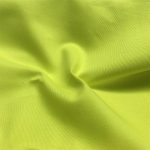 COTTON STRETCH FABRIC
COTTON STRETCH FABRIC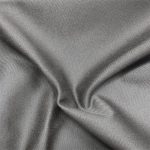 POLYESTER/COTTON FABRIC
POLYESTER/COTTON FABRIC OTHERS FABRIC
OTHERS FABRIC